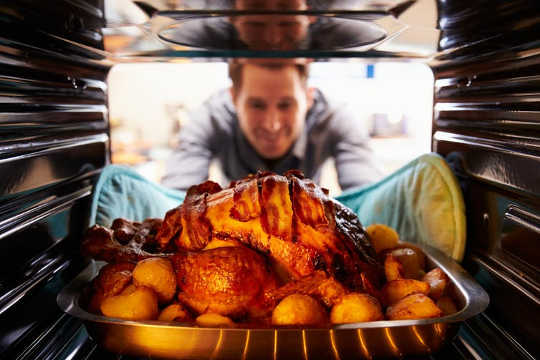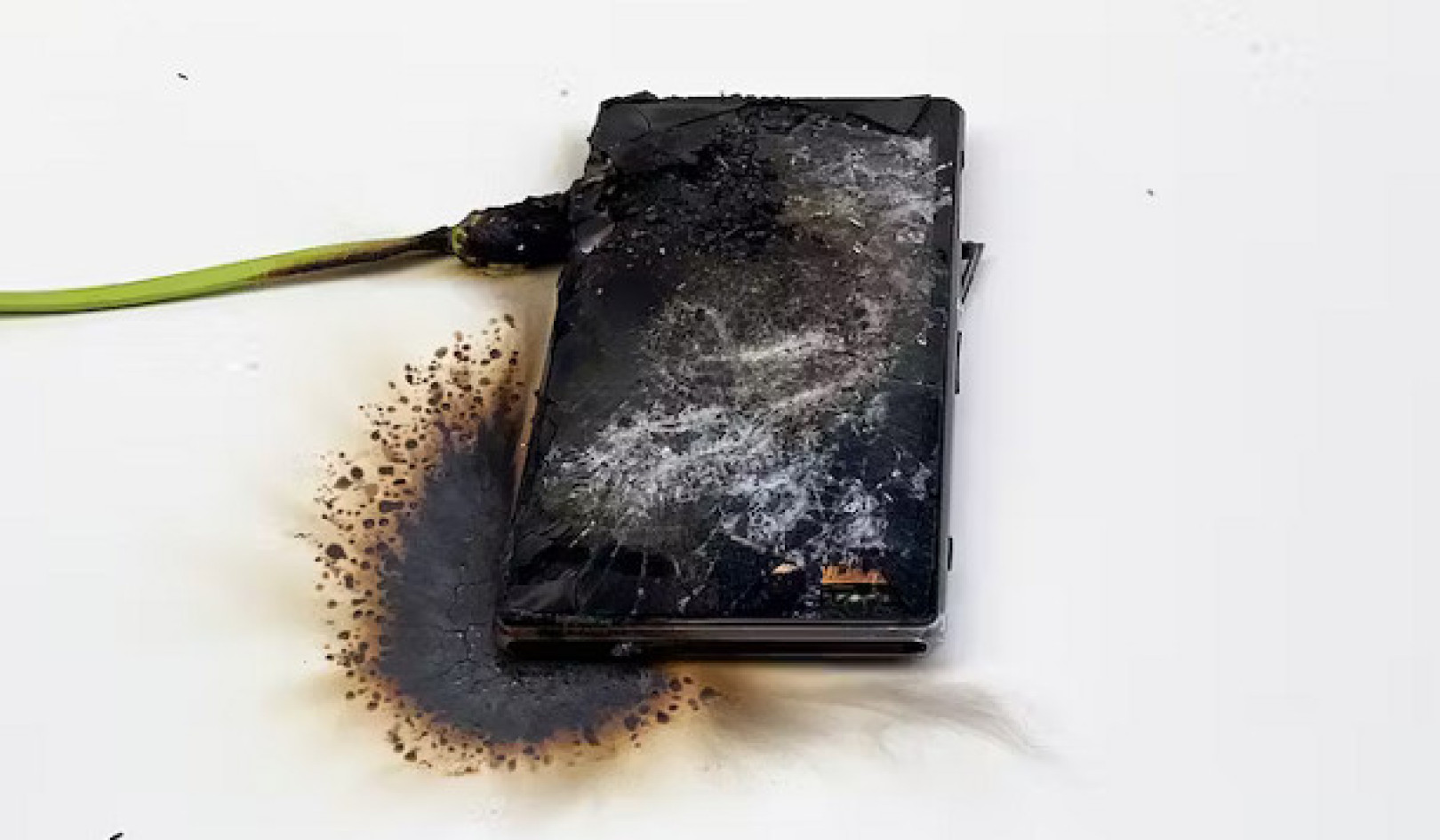 Christmas dinner time! Monkey Business Images/Shutterstock
Christmas dinner time! Monkey Business Images/Shutterstock
For countless households, Christmas is turkey time. The bird takes pride of place in festive meals across the world – but if not stored, handled and cooked properly it can cause serious food poisoning.
Turkey and other poultry is commonly associated with food poisoning bacteria such as Campylobacter, Salmonella and E. Coli.
Although standards are set in the UK to ensure that food is safe to eat throughout the supply chain, the way turkey is stored, prepared and cooked at home has the potential to cause sickness if not done properly. Here are some of the most important turkey tips to safeguard your loved ones from food poisoning this festive season.
1. Let’s talk turkey thawing
Make sure you allow enough time to thaw a frozen turkey thoroughly in the fridge before cooking. Bear in mind this may take a few days. If your turkey doesn’t have on-pack instructions for how to defrost it, it’s easy to work out – in a fridge operating at 4°C, allow between ten and 12 hours per kilogram.
To prevent cross-contamination, thaw the turkey in a container or tray at the bottom of the fridge. This will stop any drips of bacteria-filled water contaminating other food.
2. Wash your hands, not the turkey
Many people think you need to wash chicken or turkey to remove the bacteria. However, washing raw meat and poultry can actually spread bacteria around the kitchen (by water splashing), which causes cross-contamination. All you need to do to kill the bacteria is thoroughly cook the meat.
While you don’t need to wash your turkey, you do need to wash your hands – particularly after handling the bird. Our research has found that 90% of people fail to adequately wash and dry their hands immediately after handling raw poultry, which results in greater bacterial contamination of the kitchen.
To clean your hands properly, you need to spend 20-30 seconds washing with clean water and soap. Make sure you rub all parts of your hands with a soap lather, and dry using a clean hand towel or kitchen paper.
3. Roasting is key
Although we all know not to eat raw turkey, inadequate cooking remains a significant contributory factor to food poisoning. Take note of the instructions on the packaging for temperature and approximate cooking times. You may been told to pierce the thickest part of the meat, and ensure juices run clear, but colour and texture can be unreliable indicators of safety. The only accurate way to ensure thorough cooking is to use a meat thermometer to check the temperature. Cooking food to a minimum internal temperature of 75? will significantly reduce the risk of food poisoning.
It’s a good idea to check before Christmas day how long your turkey is going to take to cook so you can allocate sufficient time to pre-heat the oven, cook and rest the bird before tucking in.
4. Keep it cool
Fridges are often full to the brim with tasty treats over the Christmas holiday, but it’s really important to make sure that its temperature is cold enough to keep your turkey and other food (and you) safe. Our research has found that although most of us are aware of the importance of keeping food cold, many of us never check our fridge temperature. In fact 91% of domestic refrigerators operate above the recommended temperature, meaning that even when you think you’re keeping food safely you might not be.
To ensure food safety, and reduce spoilage, the Food Standards Agency recommends fridges run at a temperature below 5?C. Although your fridge might feel cold, the only way to make sure that it is running at the recommended temperature is to use a refrigerator thermometer. You could use your meat thermometer to check if your fridge is cold enough, however there are numerous thermometers available that you can leave in your fridge too.
Keeping food at a safe temperature is really important to limit how fast bacteria grows. So, if you have a buffet over Christmas, think about how quickly the food will be eaten, and don’t put everything out at once. Food should not be at room temperature for more than two hours. Buffet food that has been out of the fridge for more than two hours should not be eaten.
5. Turkey timing
Nobody wants to see good food go to waste. So if you have turkey left-overs, make sure it is cooled within 90 minutes of cooking, stored in the fridge and eaten within two days.
You’re likely to be cooking your turkey on Christmas day, but make sure the “use by” date on the packaging takes you up until the 25th at least. “Use by” and “once opened, use within” dates on packaging are calculated based on the growth ability of bacteria in food. It’s important to follow these guidelines as high levels of bacteria can be present which you can’t see, smell or taste.
Our cognitive research has shown over the years that although about three-quarters of people are aware that the “use-by” date indicates food safety and more than half report always checking the date, our kitchen surveys have found that two-fifths of people still had foods with lapsed use by dates in their fridges.
{youtube}XMH3BE81yUM{/youtube}
About The Author
Ellen W. Evans, Junior Research Fellow, Cardiff Metropolitan University and Beth Rowlands, Food Technologist, Cardiff Metropolitan University
This article is republished from The Conversation under a Creative Commons license. Read the original article.
Related Books
at InnerSelf Market and Amazon























